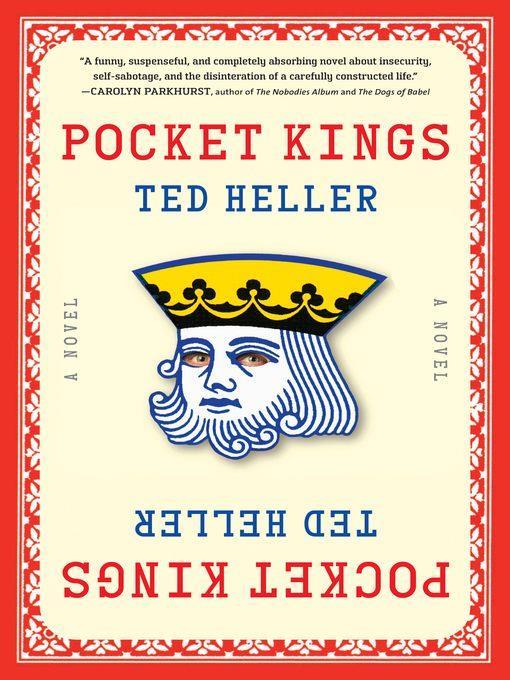
Pocket Kings
A Novel
کتاب های مرتبط
- اطلاعات
- نقد و بررسی
- دیدگاه کاربران
نقد و بررسی

January 9, 2012
The anti-hero of Heller’s third novel (after Funnymen) is Frank Dixon, a resentful schlub who’s failed at everything he’s puts his mind to: athletics, painting, and, most recently, writing. Stuck in a midlife crisis, Frank finds Internet poker and discovers that he has some talent after all. He immerses himself in a virtual community where he makes friends and potential lovers, all while winning money unstoppably. As he alienates people in the real world—from his wife to his literary agent—he delves further into his online relationships and begins to lose himself to his addiction. As “Chip Zero,” he builds a fortune, but his success breeds resentment, and one player in particular plots revenge to get his money back. The obnoxious narrator, his endless failures, and the instant messaging all grow tiresome, but Heller should be commended for creating a thoroughly repellent character whose story is captivating, even compulsive, reading. While the book has the gritty, unpleasant feel of a novel by Chuck Palahniuk or Sam Lipsyte—another futile diatribe against the barrenness of 21st-century American (male) life—it’s a well-crafted and entertaining satire on the world of modern publishing, as well as the perverse artificiality of the Internet. The prose equivalent of nails on a chalkboard, Heller still manages to make the reader laugh and rage at more or less the same time. Agent: Matthew Elblonk, the Creative Culture.

February 15, 2012
When a writer unfortunately named Franklin W. Dixon (think Hardy Boys) begins to play online poker, his life takes a strange turn. His two published books have received little attention, and he cannot find a publisher for the third; however, hiding behind the moniker Chip Zero, he finds both competitive and social success online. As he becomes addicted to easy money, virtual voyeurism, and online relationships, his real-world ambitions and marriage come tragically, but humorously, apart; his wife can't understand him, critics and other writers shun him, and his agent hides from him. The failure to connect in his real life sends Dixon on two raucous, raunchy road trips to connect with Internet friends and lovers and to revive his writing career. VERDICT The pace is fast, the plot twisty, and the satire bites viciously as Heller (Slab Rat; Funnymen) takes gleeful chunks out of the publishing world, Internet culture, and the poker craze, all the while addressing serious questions about the nature of success and reality. Thoroughly unlikable yet somehow sympathetic, Dixon is a comic protagonist for the digital age, and this novel is good, angry fun.--Neil Hollands, Williamsburg Regional Lib., VA
Copyright 2012 Library Journal, LLC Used with permission.

February 15, 2012
The writing career of New Yorker Frank Dixon is going downhill: the Amazon rankings of his first two books are slipping, and his third is so darkly disturbing that his agent can't sell it. Having failed as an athlete in his youth and as an artist in his early adulthood, and feeling desperate to do well at something, Frank finally finds success at online poker. Taking the moniker of Chip Zero at pokergalaxy.com, he's soon making so much money playing Texas Hold 'Em that he quits his day job. But easy money isn't his only online temptation, as he develops more than a friendship with fellow player Artsy Party Gal, and the two (both married) arrange to meet. Frank's first-person narrative varies from laugh-out-loud funny to depressing to scathing, as when he lashes out at persons in the book trade whom he views (sometimes rightly) as ill-treating him. There is a certain Everyman quality to Frank, whose hopes gradually fade away but whose self-deprecating humor helps carry him through his midlife angst and denial of addiction; you want to wish him well.(Reprinted with permission of Booklist, copyright 2012, American Library Association.)

























دیدگاه کاربران